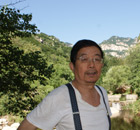Asia-Pacific
UN: Bhutto murder 'could have been prevented'
(Xinhua)
Updated: 2010-04-16 14:19
 |
Large Medium Small |
UNITED NATIONS - The assassination of former Pakistani Prime Minister Benazir Bhutto "could have been prevented" if adequate security measures were taken, according to a highly-anticipated report released here on Thursday by a United Nations investigative commission.
The report was scheduled to be released on March 31 but was postponed until April 15 on the request of Pakistani President Asif Ali Zardari, Benazir's widower.
| ||||
"The federal government lacked a comprehensive security plan for Ms. Bhutto, relying instead on provincial authorities, but then failed to issue to them the necessary instructions," the report said, stressing that the security arrangements were " fatally insufficient and ineffective."
Chile's UN Ambassador Heraldo Munoz, who chairs the UN- appointed independent commission, presented the report to the UN secretary-general Ban Ki-moon late Thursday afternoon.
Bhutto was killed on December 27, 2007, by a gunshot followed by a suicide bomb attack, as she was leaving after addressing a public meeting in Rawalpindi, a garrison city adjacent to the capital of Islamabad.
Munoz told a press conference here that he would not judge whether the failure to protect Bhutto was "deliberate."
"Ms. Bhutto faced serious threats in Pakistan from a number of sources; these included Al-Qaida, the Taliban and local Jihadi groups, and potentially from elements in the Pakistani Establishment," Munoz said.
"Notwithstanding these threats, the investigation into her assassination focused on pursuing lower level operatives allegedly linked to Baitullah Mehsud."
"The Commission finds it disturbing that little was done to investigate Baitullah Mehsud himself, Al- Qaida and any individuals or organizations that might have worked on, supported or otherwise been involved directly or indirectly in the planning or execution of the assassination," he said. "We don't make a judgment in the report."
"Ours is a fact-finding group, with no task of finding out who is responsible" for the Bhutto murder, he said, adding that that is the job of the Pakistani government.
Munoz said that his three-member commission compiled the report on the basis of more than 250 interviews, hundreds of documents and videos.









